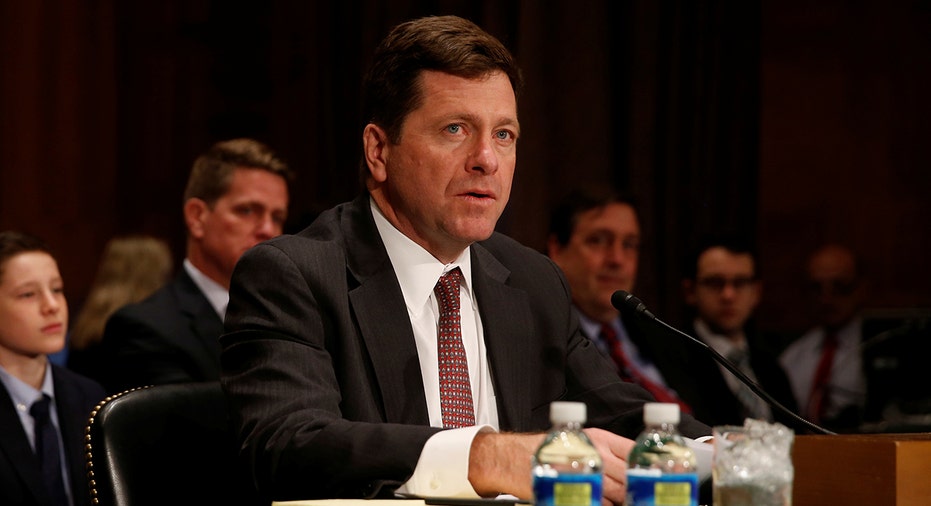US SEC Chairman signals plans to scale back corporate disclosure rules

Wall Street's top U.S. regulator on Wednesday signaled support for potentially scaling back the scope and breadth of disclosure rules and compliance costs imposed on public companies, in an effort to entice more companies to go public.
In his first major address since becoming chairman of the U.S. Securities and Exchange Commission earlier this year, Jay Clayton laid out his regulatory philosophy for how he plans to run the agency.
The speech, which he was slated to deliver to the Economic Club of New York, was short on details about the specific rules or regulations that he would like to adopt or amend.
However, his comments broadly called for efforts to scale back unnecessary corporate disclosures, reduce compliance burdens on small and mid-sized companies, ramp up the enforcement division's focus on protecting retail investors from run-of-the-mill frauds, and taking better care to retrospectively review SEC rules to ensure they are having the desired effect.
"While there are many factors that drive the decision of whether to be a public company, increased disclosure and other burdens may render alternatives for raising capital, such as the private markets, increasingly attractive to companies that only a decade ago would have been all but certain candidates for the public markets," he said in his prepared remarks.
Clayton's comments Wednesday are likely to be welcome news to corporate trade groups like the U.S. Chamber of Commerce, which has long criticized an array of SEC disclosure rules for cluttering up corporate filings with unnecessary information.
The Chamber has often sued the SEC over rules requiring disclosures that it said were not material, and has staunchly lobbied Congress to beat back other measures championed by pension funds, unions and progressive-leaning groups.
Clayton appeared on Wednesday to echo some of their concerns generally, lamenting that lawmakers and regulators have "significantly expanded the scope of required disclosures beyond the core concept of materiality."
He also urged companies to apply to the SEC for requests to modify what they are required to include in their routine financial reporting, a process that is allowed under current SEC rules.
"There are circumstances in which the commission’s reporting rules may require publicly traded companies to make disclosures that are burdensome to generate, but may not be material to the total mix of information available to investors," he said.
In addition to his comments on public company requirements, Clayton also said he plans to have the SEC launch a new fixed income market structure advisory committee to scrutinize the current rules and identify potential reforms.
Clayton also said the SEC will consider a pilot program in coming months to study the impact of lower exchange fees.
(Reporting by Sarah N. Lynch; Editing by Chris Reese)



















